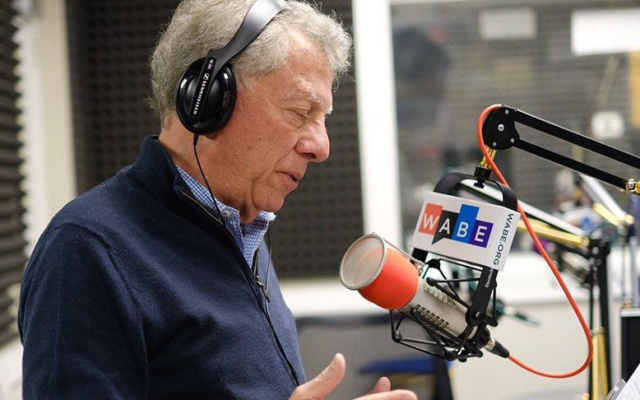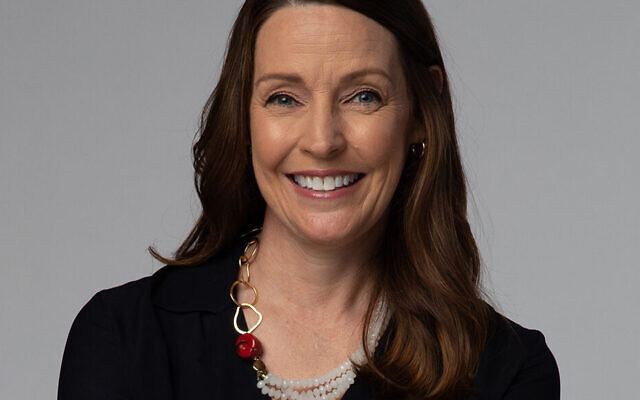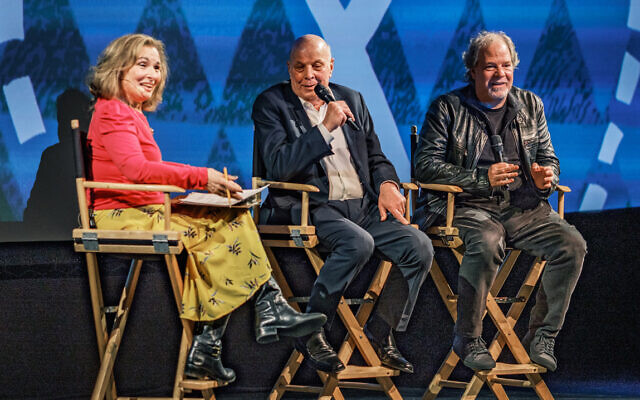Klibanoff, Reitzes Lead WABE into a Digital Future
As it celebrates its 75th anniversary, the public broadcaster in Atlanta has a new direction, new staff, new programs.

When Hank Klibanoff won a Pulitzer Prize in 2007 for a book on journalism in the Deep South of the 1950s, he felt he might achieve a certain amount of fame and a boost to his professional reputation. Maybe, he thought, he might be able to make some money off the nonfiction award winner.
“It was good recognition,” Klibanoff says. “It won a Pulitzer Prize, for goodness sakes, and you feel if you sell 30,000 copies of the book you’ve accomplished something, but even at that, I didn’t make a nickel from it, not even over several years.”
But Klibanoff, who grew up in the small Jewish community of Florence, Ala., before his long and successful career in journalism, was destined for stardom. It would not come in newspapers or the publishing world he knew so well, but on the radio and in the rapidly growing world of podcasts — something he knew little about.
Literally overnight his broadcast program, called “Buried Truths,” which was based on his work at Emory University teaching the Georgia Civil Rights Cold Cases Project. The program brought him a loyal audience on WABE, the public broadcaster in Atlanta, and on the Internet. These podcasts about the history of racial violence in the American South have been downloaded more than three million times by listeners all over the world and hundreds of thousands more on public radio. At the age of 74, with over 60 productions during the last four years, he has achieved a kind of fame that he never thought possible.

“I never thought that that kind of power could be unleashed,” Klibanoff says. “I never thought that kind of international, global, seemingly intergalactic power would be something I ever did or would benefit from or be able to use. That’s a magnificent change.”
His series has won a string of prestigious prizes, including a Peabody Award from the University of Georgia, generally considered the Pulitzer Prize of broadcasting. President Joe Biden has appointed him to a Presidential commission on racial justice.
The pivot by the station to a future that’s anchored in the digital world is something that Lois Reitzes could hardly have imagined when she first went to work at the station 44 years ago. In 1979, when she was hired to work the early morning broadcast shift, the station was primarily devoted to educational instruction. As the broadcast arm of the Atlanta public school system, it broadcasts to elementary and secondary school classrooms six hours a day. After the school day ended, programs for the general public resumed.
In 1982, when the school broadcasts were shunted off to a broadcast sub-carrier, Reitzes oversaw a classical music format that helped make the Atlanta station one of the most successful public radio broadcasters in the nation. In addition to her broadcast responsibilities, she has been a frequent host of opening and closing night programs of the Atlanta Jewish Film Festival and, with her family, devoted members of The Temple in Midtown.
She believes the station’s success, now, as in the past, has come from the sense of intimacy and the very personal bond that it has created with its audience.
“I always imagine myself speaking to one person. I think that part of the beauty of radio and audio is the intimacy of the medium. It helps to build a strong sense of rapport and, having a real familial relationship with the audience, attests to intimacy of the medium.”

The classical music is mostly gone from the station, although a subcarrier frequency still carries classical music broadcasts. Reitzes continues to host performances of the Atlanta Symphony Orchestra on Sunday nights and she’s managed to survive in the world of news, talk shows, and podcasts that WABE now programs. Today, she hosts the hour-long arts broadcast that has become a popular feature of the station’s daily schedule. It’s helped to extend her career into the middle of her fourth decade with listeners.
“When the format changed nearly 10 years ago, I thought that absolutely that was going to be the end of my tenure. I’d been there 35 years, so it was quite a run. But executive management said arts and culture is an important part of what we do, and we think you should own that. So, I’m still here.”
As it faces an increasingly competitive future, it’s clear that the station is putting more emphasis on politics and civic engagement. It’s doubled its news department in recent years, and it has a recently announced partnership with the Atlanta Journal-Constitution.
When the format changed nearly 10 years ago, I thought that absolutely that was going to be the end of my tenure. I’d been there 35 years, so it was quite a run. But executive management said arts and culture is an important part of what we do, and we think you should own that. So, I’m still here.
The new daily political broadcast by AJC journalists on WABE is hosted by Bill Nigut, the longtime Atlanta media personality. It is symbolic of the new directions that the two legacy media organizations are exploring as they grapple with the future.
The station has raised $6.5 million in new funding, has added additional technical staff, and has commissioned a quartet of four new broadcasts/podcasts in an attempt to find a mix of content and technology that will energize listeners and build audience in this anniversary year.
The CEO and president of the station, Jennifer Dorian, a veteran of 30 years in media management, is hopeful that the experience she brings to WABE will keep the station relevant.
“We have a very prominent and clear goal to shore up our ability to keep transmitting and broadcasting. But at the same time, in the next five years, creativity will be the key. In the future, being a local production studio is going to be vital not only to our service, but also our sustainability.”



comments